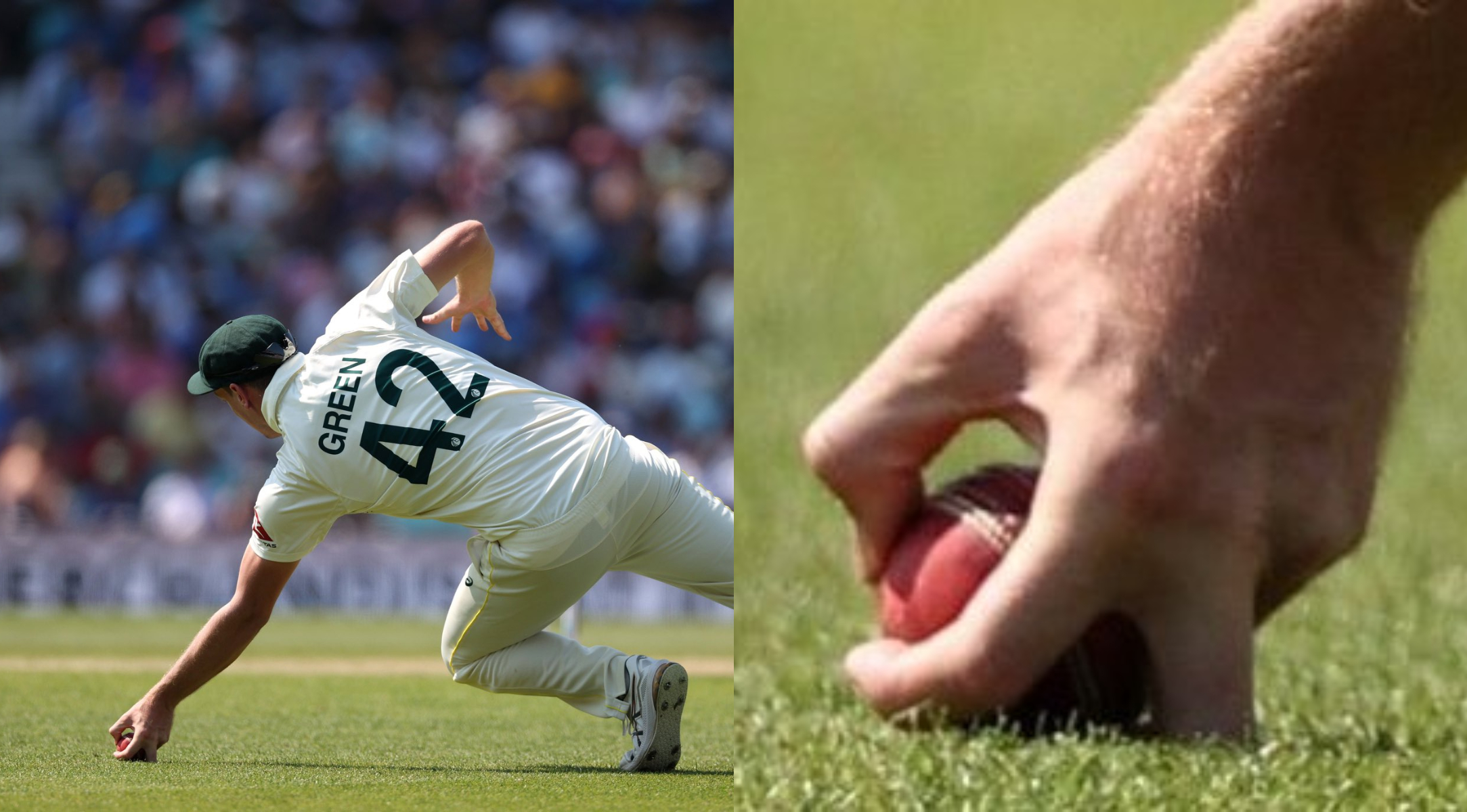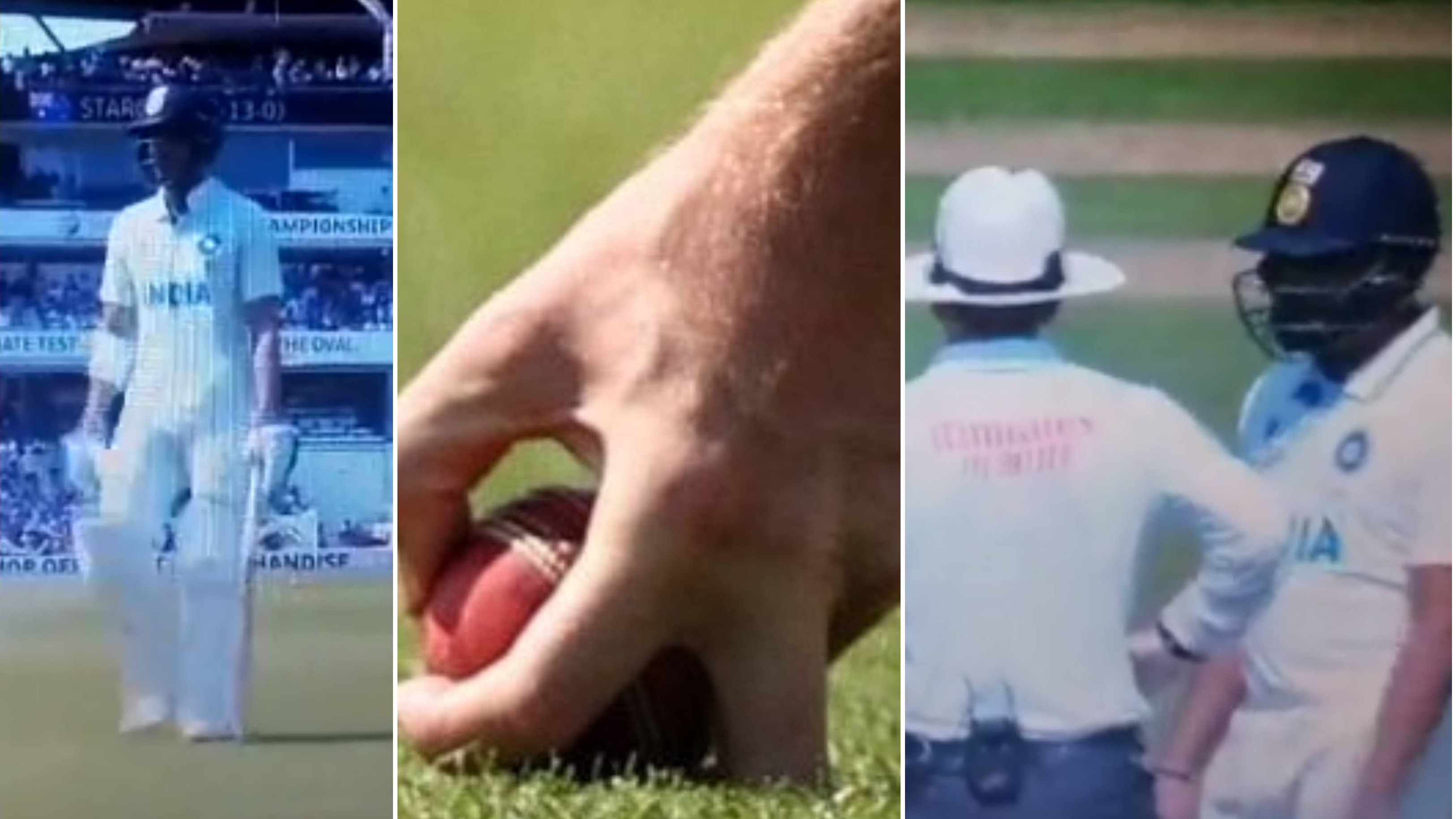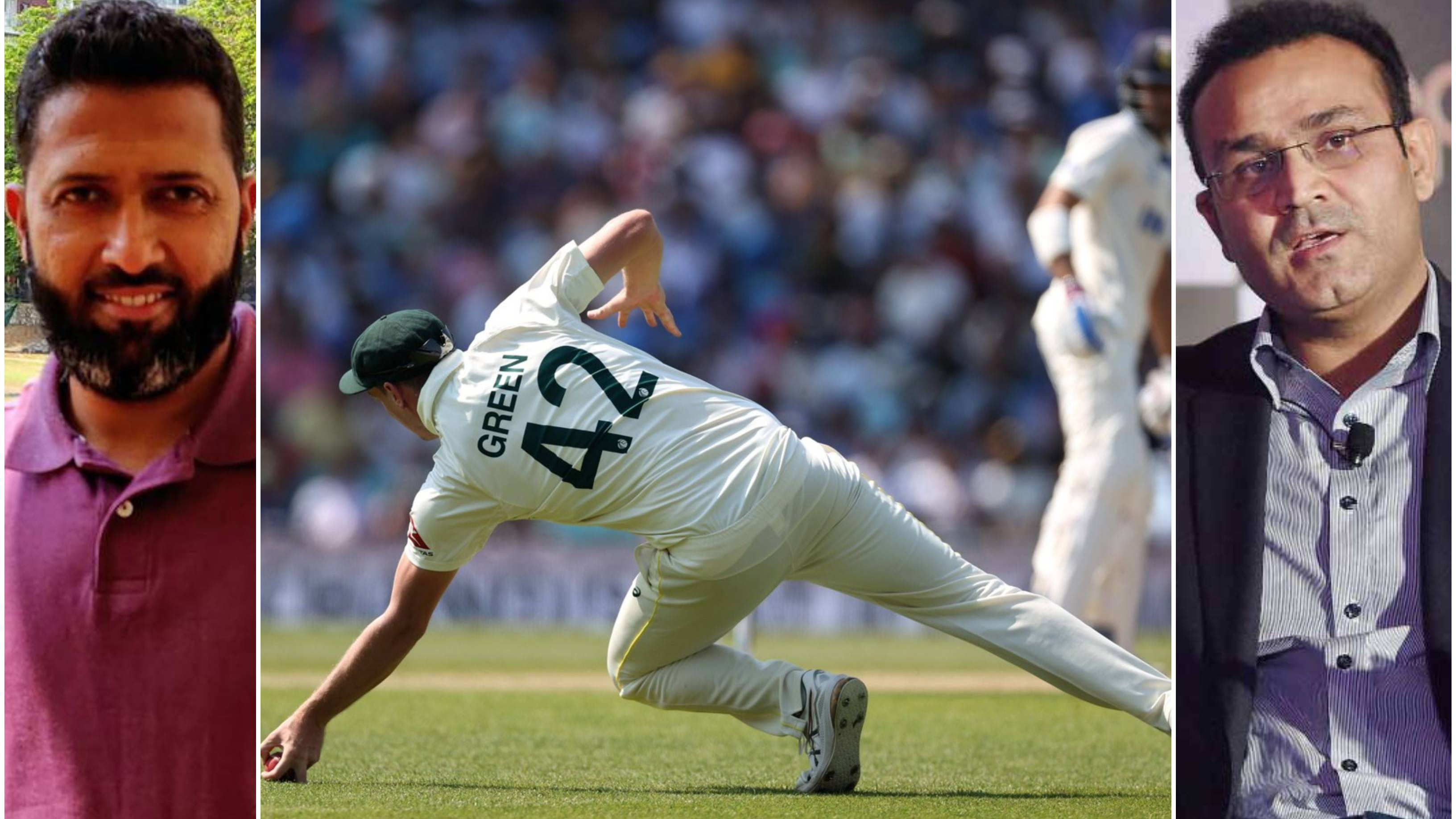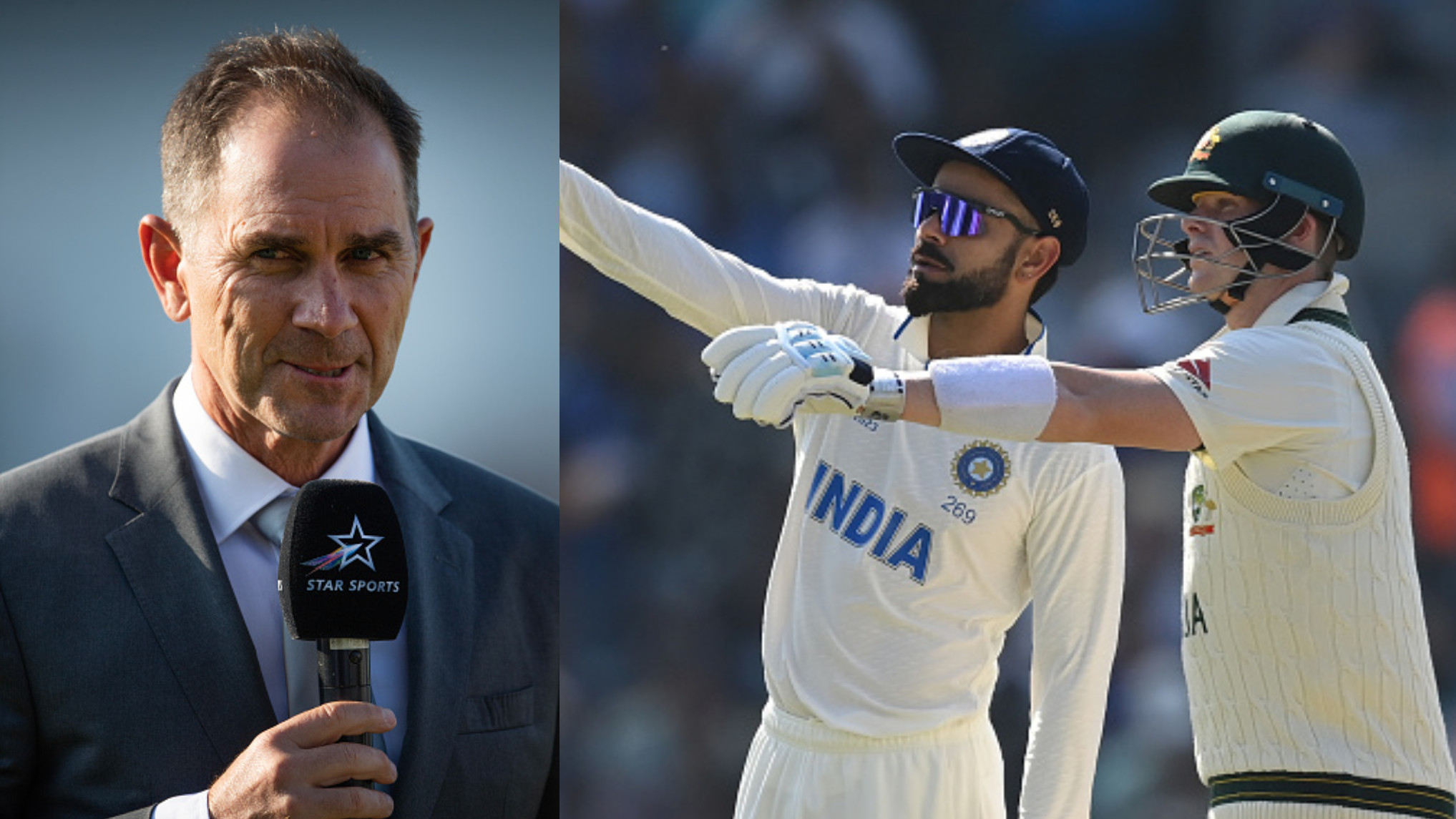 Australia and India’s WTC 2023 final clash has seen the Pat Cummins-led side dominating the proceedings at the Oval in London and on the fourth day on June 10, 2023, they set the no.1 ranked Test side a huge target to win the mace.
Australia and India’s WTC 2023 final clash has seen the Pat Cummins-led side dominating the proceedings at the Oval in London and on the fourth day on June 10, 2023, they set the no.1 ranked Test side a huge target to win the mace.
Australia declared their second innings on 270/8 with Alex Carey making 66*. For India, Ravindra Jadeja picked 3/58 and Mohammad Shami and Umesh Yadav picked two wickets apiece.
Set 444 runs to win the match and the ICC World Test Championship mace, India started off positively. Shubman Gill hit 2 beautiful boundaries in his 19-ball 18-run stay. But at the stroke of tea on day four, Shubman Gill lost his wicket in controversial circumstances.
He had edged Scott Boland to slips where the tall Cameron Green lunged to his left to take a one-handed stunner. The controversy comes in what happened next. As he rolled over, many wondered if the ball had touched the ground or not.
After the decision went to the TV umpire Richard Kettleborough and since the match is being played under new rules, there was no soft signal from the on-field umpires.
After several replays from different angles, the TV umpire decided to give Shubman out, much to the dismay of the batter and his partner captain Rohit Sharma.
That’s the question Ricky Ponting asked on air on ICC feed: “The ball went into his hand may be 6- 8 inches above the ground but the question I have got was did any part of the ball touch the ground just after it completed the catch. I am sure that’s what Rohit Sharma is arguing with the umpires; I am sure that’s why Shubman Gill is so disappointed.
It had carried, six-eight inches above the ground; no doubt about that but did it then actually roll over and touch the top of the surface?”
WTC 2023 Final: WATCH- Shubman Gill’s alertness saves him from Virat Kohli’s low-blow attack
His fellow commentator Kumar Sangakkara also had the same doubts.
“Yeah it’s about how you see it. He did catch the ball with fingers under the ball but if any part of the ball touches the ground it can be interpreted as helping the ball to stay in the hand and usually the umpires always go not out,” Sangakkara said.
Ravi Shastri said: “The third umpire thought the fingers were under but the question is whether it rolled over after he completed the catch.”
“When the first umpire gives you out, the third umpire has to find conclusive evidence to overturn it,” said Sunil Gavaskar on Star Sports at Tea.



